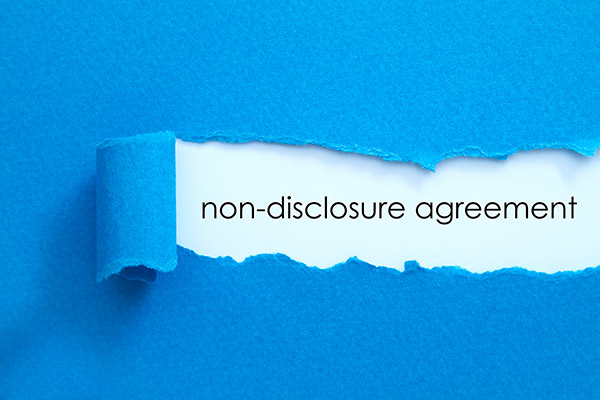 We live in a highly competitive business environment, which pits people against firms, and major corporations against small businesses. When negotiating transactions, individuals and companies must prevent unauthorized disclosure of their trade secrets and proprietary information, which is so vitally important in such a competitive business environment. One of the ways for professionals and firms to protect trade secrets and proprietary information when negotiating transactions is through a properly drafted Non-Disclosure Agreement (NDA). With an NDA, the parties to a transaction are prohibited from sharing with third parties trade secrets and proprietary information that is disclosed to them in connection with the negotiating and due diligence of a proposed transaction.
We live in a highly competitive business environment, which pits people against firms, and major corporations against small businesses. When negotiating transactions, individuals and companies must prevent unauthorized disclosure of their trade secrets and proprietary information, which is so vitally important in such a competitive business environment. One of the ways for professionals and firms to protect trade secrets and proprietary information when negotiating transactions is through a properly drafted Non-Disclosure Agreement (NDA). With an NDA, the parties to a transaction are prohibited from sharing with third parties trade secrets and proprietary information that is disclosed to them in connection with the negotiating and due diligence of a proposed transaction.
Best Practices with Non-Disclosure Agreements
Mistakes people make with NDA’s
Some folks simply grab generic documents from the internet and then have others sign on the dotted line. In reality, any NDA needs to be drafted for the specific set of circumstances, particularly defining what constitutes trade secrets and proprietary information and what events constitute a breach of the NDA.
So, what specifics should an NDA cover?
The parties want to be specific regarding what information can and cannot be shared with third parties. Also, the parties must determine if there is any information that is of such a classified nature that it will not be disclosed to the other party, regardless of the NDA. The parties should consider differentiating between verbal and written disclosures.
A list of exclusions
Generally speaking, information that is already public knowledge or that the recipient already knows from secondary sources is excluded from the sharing restrictions of the NDA.
Time restrictions
The parties should consider the term of the NDA depending on the nature of the information that is being exchanged.
Rules covering the return of confidential information
A properly drafted NDA should specify that the confidential information disclosed during the transaction and due diligence periods should be returned, and that the recipient should not keep copies unless otherwise agreed.
For Professional Advice Regarding Non-Disclosure Agreements Seek Poniatowski Leding Parikh Law Corporation
At Poniatowski Leding Parikh Law Corporation our experienced commercial, business and real estate attorneys and are able to help you create a Non-Disclosure Agreement in connection with a pending business transaction or in the employment or independent contractor/vendor context. We have over 50 years combined experience representing individuals and businesses in the Bay Area, with law offices in Castro Valley, Oakland, and Pleasanton.
You can contact us using our online contact form or by calling one of our Bay Area firms below.
Castro Valley law firm 510-881-8700
Oakland law firm 510-671-0887
Pleasanton law Firm 925-400-8087

